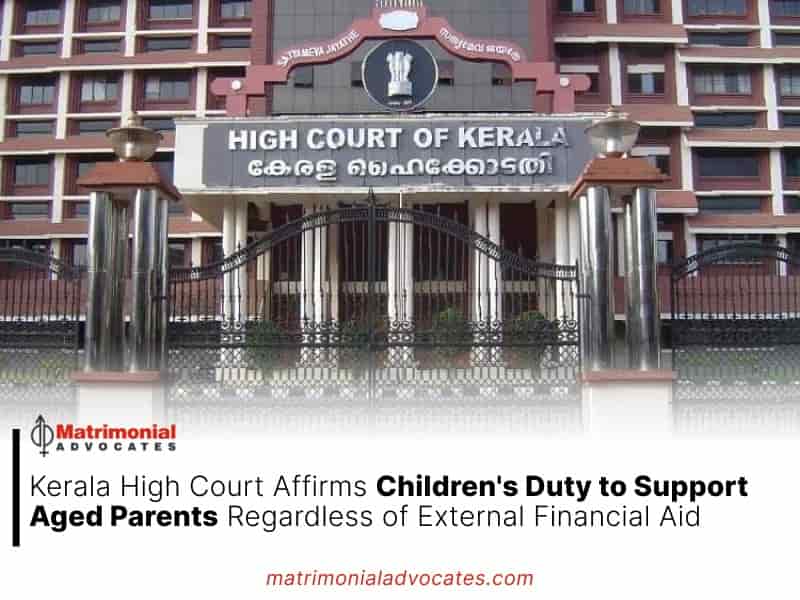
The Kerala High Court recently held that children remain obligated to support their elderly parents, even if they receive financial assistance from friends or relatives.
Justice Kauser Edappagath underscored that filial duty is a fundamental responsibility rooted in morality, religion, and law. The Court emphasized that children, particularly sons, have a heightened obligation to care for their aging parents, as reflected in religious scriptures and legal provisions.
The Court stated, “If an elderly father or mother sustains themselves with financial help from relatives or friends, it does not absolve the children of their duty to provide maintenance. Supporting aged parents is both a moral and legal obligation of the son. Filial responsibility is a fundamental duty enshrined in morality, religion, and law. Various religious texts, cultural traditions, and legal frameworks highlight that children, especially sons, bear a greater responsibility in ensuring the care and well-being of their elderly parents.”
The Court issued the order in response to a writ petition filed by a 74-year-old father seeking maintenance from his children, as he was financially unable to support himself. The respondents, his well-settled sons employed in Kuwait, were born from his first marriage.
The petitioner divorced his first wife in 2013, alleging that she had an illicit relationship with his brother. He remarried in 2014 and currently lives with his second wife.
The respondents contended that their father was involved in a business abroad with his brother and had a source of income from it.
The Family Court had dismissed his petition, concluding that he had sufficient means to support himself. It also noted that since the petitioner had remarried, he likely had a stable source of income to sustain his wife, further justifying the rejection of his maintenance claim.
The Court also observed that the respondents were financially stable and well-settled in Kuwait, making them capable of supporting their father.
Rejecting the respondents’ claim that the petitioner had been receiving money from his brother until 2018, the Court clarified that the financial assistance was meant for his daily expenses and did not constitute a share in any business.
Additionally, the Court held that the petitioner receiving some financial aid from others to sustain himself and his second wife did not absolve his children of their duty to provide maintenance.
Highlighting the significance of the father-son relationship, the Court emphasized that just as parents support their children throughout their lives, children, in turn, have a fundamental responsibility to care for their aging parents when they become dependent.
Court stated, “Just as a father once cared for his son, it is only fair that the son reciprocates when his father is old and in need. This responsibility is not only a moral and ethical obligation but also a legal duty. Society thrives when its elderly are treated with dignity and care. Neglecting an aged father not only leads to emotional distress but also weakens the very fabric of society.”
The Court elaborated on a son’s duty to care for his elderly parents by referencing religious texts, including Hindu Dharma, Manusmriti, the Quran, the Bible, and Buddhist teachings.
It emphasized that a son’s obligation to support his aged parents is reinforced by various legal provisions. Citing Section 4 of the Maintenance and Welfare of Parents and Senior Citizens Act, the Court stated that a son can be legally required to provide maintenance to his elderly father. It also referred to Section 20 of the Hindu Adoptions and Maintenance Act, which mandates that a son must support his aged and dependent parents. Additionally, the Court highlighted Section 125(1) of the CrPC and Section 144(d) of the BNSS, both of which provide for the maintenance of parents unable to sustain themselves.
Based on these principles, the Court ruled that the respondents, being financially stable and well-employed, have both a legal and moral obligation to support their 74-year-old father.
As a result, the Court set aside the Family Court’s decision that denied maintenance. It also ordered the respondents to pay their father a monthly maintenance amount of ₹20,000.




